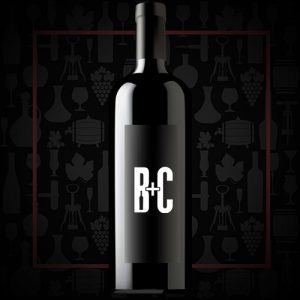Cellar Profile
In a tiny northern area of Emilia-Romagna, Italy, sandwiched between Piedmont and Tuscany, sits Piacenza. It was here that Felice Salamini decided to build a small vineyard to craft fine wines from autochthonous Malvasia, Barbera and Bonarda. It was here that Luretta was born! 30 years and untold successes later, Felice’s son Lucio has taken over at the helm and the property under vine has expanded to almost 50 hectares. The philosophy of the winery is simple: stress the vines, restrict yields, use organic and biodynamic principles and craft structured, elegant wines. To that end, there is no use of fertilizers or irrigation. The vines are purposely starved of nutrients and water, with severely restricted yields to thicken skins and long hang times to ensure full phenolic ripeness. Hand-harvested and meticulously sorted, Luretta uses only Allier French oak for aging and fermentation when wood is called for.
Region
The Colli Piacentini which give the DOC its title are the hills to the south of Piacenza, Emilia-Romagna’s most westerly city. These are the foothills of the northern Apennines, which run northwest to southeast through Emilia-Romagna, providing a patchwork of terroirs among their peaks and valleys. Many of the vineyards of the Colli Piacentini are planted on the rolling hills leading up to the northern slopes of the Apennine Mountains. The vineyard soils are composed of a mix of clay, marl, sand and sandstone from the Pliocene epoch.
Vineyard
The Barbera and Bonarda grown in the Luretta vineyards on single spurred cordon are organically cultivated under a dry farming practice. Keeping the vines under hydric stress forces the plants to reduce the amount of water in the berries, reduce pulp and thicken the skins. This keeps the berries small and flavours intense.
Varieties
Bonarda is a red wine grape variety found in several areas of central northern Italy, namely eastern Piedmont, southern Lombardy and western Emilia-Romagna. It is sometimes known by its synonym Croatina, a nickname it shares with Uva Rara and Bonarda Piedmontese, a near-extinct aromatic variety from the hills of Piedmont. Bonarda has characteristics similar to the Dolcetto grape in that it tends to produce fruity, deeply-coloured wines that are mildly tannic and can benefit from bottle aging.
Winemaking
20 day fermentation in small French oak followed by 9 months aging in French oak with a 30% turnover of new oak each year.
Tasting Notes
Intense ruby red in the glass. The nose displays aromatics of ripe red fruit spices. The palate is extremely expressive with notes of dark cherries, licorice, black plum and spices. Ample, plush tannins give way to a long finish balanced by blight acidity.

 info@buyersandcellars.ca
www.buyersandcellars.ca
info@buyersandcellars.ca
www.buyersandcellars.ca